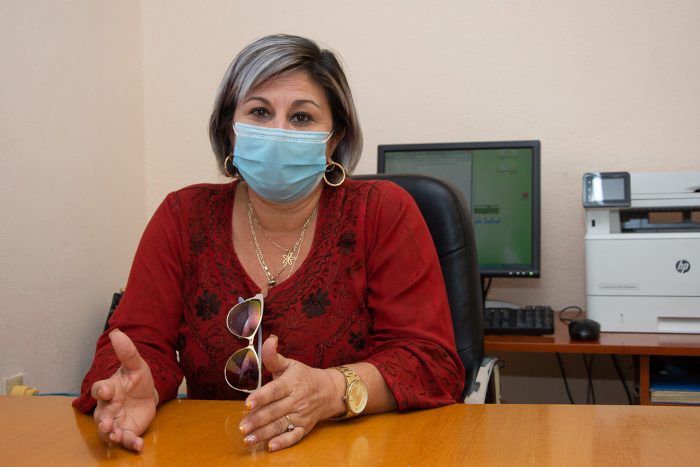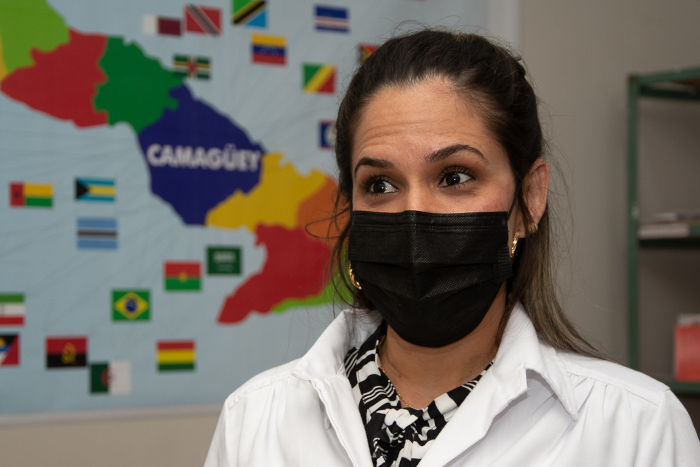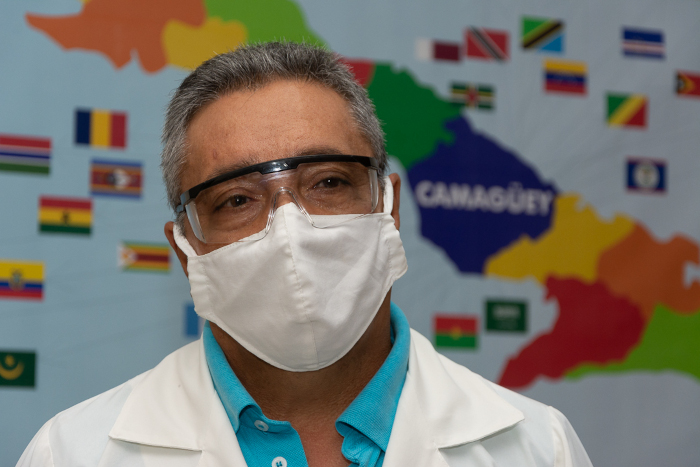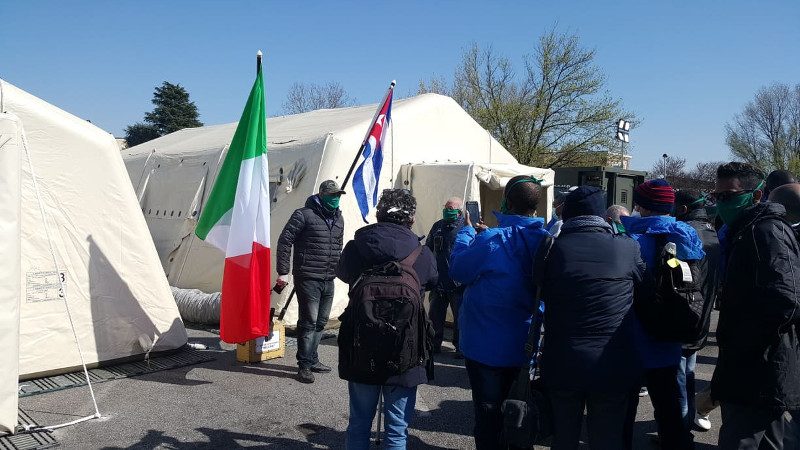CAMAGUEY.- On May 23, 1963, a Britania de Cubana de Aviation plane transported 29 doctors, four dentists, 14 nurses and seven health technicians to Algeria. Thus began our first internationalist medical mission; just three years and five months after the triumph of the Revolution, it was already showing what we were capable of doing.
Almost 60 years later, this Caribbean archipelago has provided its medical services to those most in need in Africa, Latin America and Asia. The same in normal conditions as in the face of great disasters or epidemics, Cuban medicine has been there.
Heirs of this tradition that started in Algeria, a brigade in which there were two people from Camagüey, they are the 1,929 collaborators who make the name of Cuba great in 43 countries, including 98 courageous Camagüey's health personnel, members of the Henry Reeve Brigade present in 17 countries.
Mike Pompeo, former Secretary of State of the United States, called them slaves, and it is very difficult for those who send soldiers to kill them that someone sends doctors to save.

Diamaris Suárez González, head of the Collaboration department in the provincial direction of the sector in Camagüey, highlighted that there are 40 collaborators from the territory in the same African nation that received the first Cubans 58 years ago.
Inspired by that example, the health professionals of this land have not said no, not even in the last year, with the conditions of a pandemic that costs lives by the hour and before which health personnel are very susceptible to becoming ill.
“Even those who were waiting to go out on other missions, we have called them to the Brigade and none have refused, leaving behind families that we take care of, but it is never the same when they are far away,” the doctor stressed.
That first internationalist mission lasted two years and two months. With the return to Cuba on July 23, 1965, a seed was sown that has germinated in the world, and above all what they have had to go through, there they are saving lives with humanism and sensitivity.

Dra. Yamilé Gómez Guerra. Comprehensive General Medicine Specialist:
“I left for the first time in June 2020, in the Henry Reeve Brigade that went to Qatar where I stayed for six months. It was very difficult for us because of the language. Older adults do not know English and communication was very difficult. We had to invent ways to understand each other and overcome those barriers, but it was not impossible. There was a lot of risk, because we went directly to work in the Red Zone, and we Cubans give different attention to that of doctors from other countries. We examined and touched the patient, we inquired about his condition, beyond the disease, and then they did not want anyone other than Cuban to treat them.
“The brigade was divided, we worked in hospitals, in quarantine centers and another group in the Cuban hospital in Qatar. It was my turn in what would be a polyclinic here and then they moved me to that institution of ours that cared for patients with COVID-19. Specialists in Comprehensive General Medicine had never been sent to the missions in that country, with "Henry Reeve" we were the first.
“The protocol is very different and in six months it changed four times; the drugs were completely different and they do not exist in Cuba. We had to study and give us feedback.
“It was also very difficult for us due to cultural differences, the way we dress constitutes a barrier, you just see their eyes, the female doctors only treated female patients, and after their recovery you no longer knew anything about them. It became complicated, especially for us, for men to accept us and allow themselves to be cared for; we are adapted to looking men straight ahead and we couldn't do it there.
“The family always worries. Here were my parents who asked me to take care of myself, but they were content that I complied with the country. Besides, she had never been away from them for so long. Despite the sacrifice, it is a unique experience that marks you for a lifetime and I am grateful for the opportunity to live it ”.

Dr. Wilfredo Bello Sánchez. Comprehensive General Medicine Specialist:
“I have seven international missions, three of which are called short and four long. In Gambia, Pakistan, Bolivia, Brazil, Mexico, and twice in Venezuela. Of all the most difficult was Gambia, with very adverse conditions, without water, in a small rural hospital, we saw diseases such as yellow fever, rabies, tetanus, I got sick with malaria.
“The one in Pakistan was also very complex. We got there when the earthquake and we set up a camp hospital, we had to adapt to another culture, even learn Islam. Children are the last in importance, very different from how it is here, for example at lunchtime, men do it first, then women and then the little ones. On the border with Afghanistan, I treated the wounded who were Taliban and you had to work very carefully.
“In Latin America, I was in the Andes of Bolivia, with the aborigines, in intricate conditions. In Mexico, we had a military hospital in the middle of the pandemic and the risks were very high, in addition to having worked with meals and spicy suaces. It was an emerging center, with huge rooms, with more than 100 beds, all positive for COVID-19. The same thing you could find an asymptomatic next to someone who was dying, that is, poorly organized. The Mexicans did not touch the patient, but we bet on the clinic; like Cuban medicine, human, that touches the patient, there are few left in the world and now with the pandemic even fewer.
“We Cubans, by principles, by training, bring humanism, solidarity and internationalism to our acting as professionals, that is also Fidel's legacy.
“Internationalist missions have made me grow as a human being and as a professional, they teach you to love your country more, because you compare and see that much of what happens abroad does not exist here. We get to places where they don't even know that Cuba exists, because most of our brigades are aimed at the poorest populations with a lower cultural level. But later they end up thanking and wanting to know more about Cuba and the Cubans. "
- Translated by Linet Acuña Quilez



